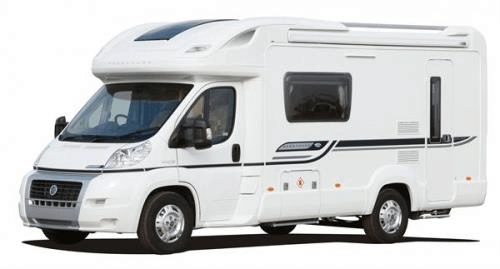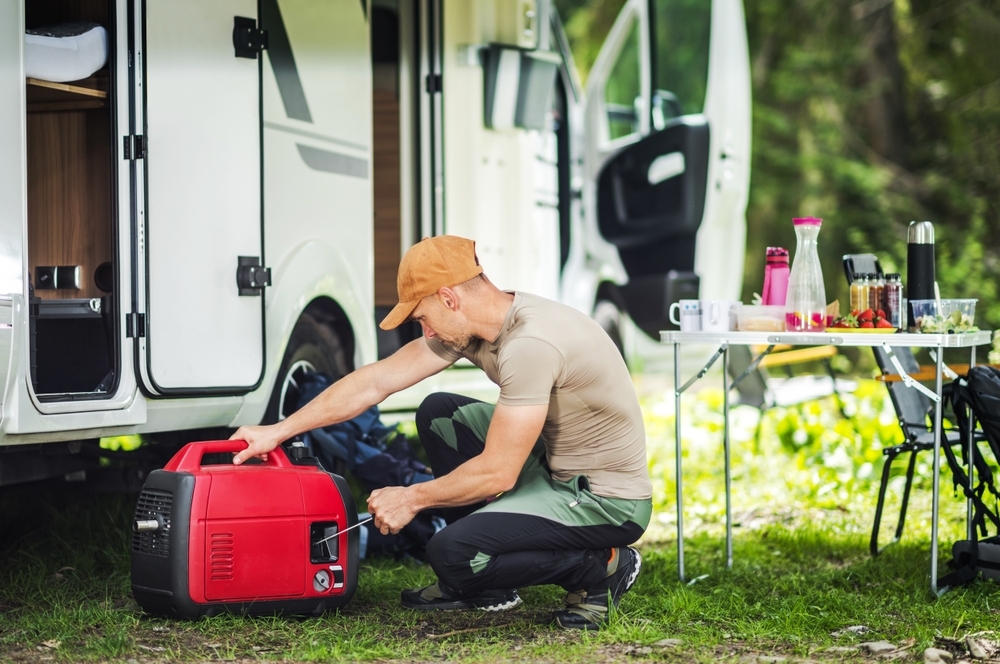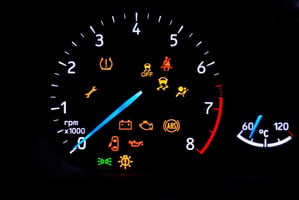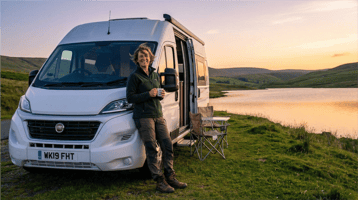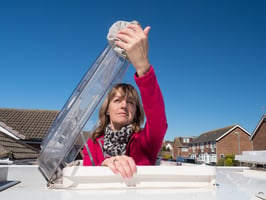When you’re behind the wheel of a motorhome, the dashboard is your vehicle’s way of talking to you....
When you’re travelling in your motorhome, a reliable power source is essential, especially if you’re going to be off-grid. When in a rural area, or with limited hook-up options, a generator can give you the freedom to enjoy your tech and other appliances without relying on mains electricity. But before you rush out and buy one, there are a few important things you need to know, to make sure you get the right one for you, and also use it correctly.
If I haven’t got one, is it worth having one?
More often than not, that’s probably a yes. Generators provide power for your motorhome’s electrical appliances when you’re not connected to an electrical hook-up, which includes things like your kettle, microwave, hairdryer, TV, battery charger, and likely much more, especially if you work from your van. And, they are great for running the air con, too, especially when it’s hot!
While leisure batteries and solar panels do a great job of powering low-draw appliances, they can struggle to keep up with high-demand items, especially in winter or during cloudy spells (if we’re talking about solar panels). A generator acts as a great backup power source, giving you that extra peace of mind, and also more flexibility when travelling.

The different main types of generator
Petrol
Often one of the most common types used in motorhoming, petrol generators are widely available and relatively affordable. They’re great for occasional use, though they can be a little noisy and are less fuel-efficient than some of the alternatives below, as well as be a bit of a fire risk if not used properly - apparently they have been known to explode on rare occasions.
Diesel
Diesel generators are likely more suited to long-term or frequent use. They tend to be more fuel-efficient and robust, and if your motorhome runs on diesel, it obviously simplifies your fuel needs. They are often loud, though!
LPG
LPG (liquefied petroleum gas) generators are a quieter and cleaner option. They can often run off the same gas system that powers your fridge or hob, making them convenient and quite environmentally friendly.
Rechargeable power
You could also get a battery-powered generator, which runs on a large lithium-ion or lead-acid battery. They’re essentially silent, emission-free and lightweight compared to traditional fuel generators. Typically, their power output ranges from 300W to 3000W (although some can go higher for short periods) and they can be great for shorter-term use for charging laptops or running a small fridge, for example. You can charge these from the mains, solar panels or even from the motorhome’s engine.
Portable vs built-in generators
Portable generators are a great choice if you only need power occasionally. They’re usually easy to store, move, and use as needed. They’re usually cheaper too. Check the sizing before you buy - you want to know that you have the space for it, and also how heavy it’s going to be.
Built-in generators, on the other hand, are hardwired into your motorhome and offer a more seamless power solution. They’re ideal for those people who travel frequently or full-time, but they do come with a higher price tag and an installation cost, and you do need to maintain them.
Whatever type you opt for, always make sure you read the manual, as the instructions for use do tend to differ between different types of generator and also different manufacturers.

What size generator do you need?
Generators are rated in watts/kilowatts. To choose the right one, you need to calculate the total wattage of the appliances you plan to run simultaneously. Here’s a very rough guide to give you an indication:
• Laptop: 50-100W
• Kettle: 1000-3000W
• Microwave: 600-1200W
• Hairdryer: 1200-1800W
• TV: 100-200W
• Battery charger: 200-400W
As a general rule, a 2000W (2kW) generator will likely suit most casual users, while those who use more high-demand appliances may want to consider something closer to 3000W and beyond.
Are they noisy?
One of the most common complaints about generators is noise! You can look for models with a low decibel rating (ideally under 60dB). Inverter generators are typically much quieter and more efficient, which is perfect for motorhome use and for being a good neighbour on site! Look for generators equipped with quieting technologies such as soundproofing materials and advanced mufflers, too.
Some additional considerations, including safety…
Some campsites don’t allow the use of generators, especially at certain times of day, so always check the rules before firing one up. If you’re wild camping, be considerate of the locals, the wildlife, and any fellow travellers. A quiet, respectful approach goes a long way here.
Also, make sure your portable generator is placed on a flat, stable surface with good ventilation - never, ever run it inside your motorhome or awning due to the risk of carbon monoxide poisoning. Keep it dry, too - don’t let it get wet outside in the rain.
Fuel storage
Store the fuel for your generator safely, in approved containers, away from any heat sources or flames.
Regular servicing
Clean the air filter, check the oil levels, and run your generator periodically, even if it’s not in regular use. Keep it clean, as they can accumulate a lot of dust and dirt, by wiping it down when not in use with a soft cloth. Your manual will likely tell you when maintenance should be carried out, after a set number of hours, for example.
Use a surge protector
You can use one of these to protect your appliances from voltage spikes.
Fit a carbon monoxide alarm
Always have one of these fitted in your motorhome - it’s pretty essential if you’re using a generator. Also, make sure the exhaust is always suitably externally routed for your inbuilt generator. It’s a good idea to not fall sleep with it on, too.

Generators can be a fantastic addition to your setup, especially if you love travelling off-grid or want the comfort of high-powered appliances. With the right generator, you’ll be able to explore further and stay away longer, and enjoy more independence. Hopefully our guide helps you to pick the one that’s ideal for you.


